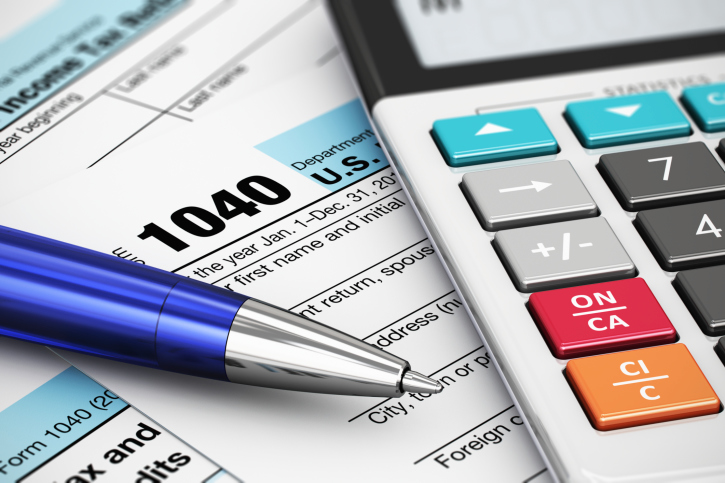Are You Applying for a Reverse Mortgage? Here Are 3 Considerations You’ll Need to Make
 If you’re a homeowner who is looking to tap in to the home equity that you’ve spent years building you may be interested in a “reverse mortgage” or “home equity conversion mortgage”. While these unique financial tools aren’t for everyone, if you qualify for a reverse mortgage you’ll find that this might be the perfect financial solution which allows you to pay off your existing mortgage, or for some other regular expenses that you have.
If you’re a homeowner who is looking to tap in to the home equity that you’ve spent years building you may be interested in a “reverse mortgage” or “home equity conversion mortgage”. While these unique financial tools aren’t for everyone, if you qualify for a reverse mortgage you’ll find that this might be the perfect financial solution which allows you to pay off your existing mortgage, or for some other regular expenses that you have.
Let’s take a closer look at how reverse mortgages work, including how to qualify, what happens to your existing mortgage and what a reverse mortgage might cost.
Do You Meet the Requirements for a Reverse Mortgage?
In short, a reverse mortgage is a type of home loan in which the lender pays you monthly payments or a lump sum based on the equity that you’ve built up in your home. At some point in the future – when you move out of the home, or pass away – the reverse mortgage loan will become payable.
As mentioned above, reverse mortgages aren’t for everyone. You’ll need to be at least 62 years of age and be a homeowner who has enough equity built up in your home to qualify. You’ll also need to understand that your lender will scrutinize your current financial position to ensure that you can keep up with property taxes and other regular costs that you may incur.
What Happens to Your Existing Mortgage?
If you have a regular mortgage it’s still possible to qualify for a reverse mortgage, but you’ll need to use some of the proceeds to pay off your existing mortgage. For example, if you have $50,000 owing on your mortgage and you receive a reverse mortgage for $100,000, you can pay your initial mortgage off and still have $50,000 to use as you see fit.
Do You Know What a Reverse Mortgage Costs?
Keep in mind that like a traditional mortgage, a reverse mortgage has costs attached. You’ll need to pay mortgage insurance premiums, service fees, lender fees and other third-party fees that are typically referred to as “closing costs”.
Learn More About Your Reverse Mortgages Options
A reverse mortgage can be an excellent way to take advantage of the equity that is currently locked up in your home. To learn more about reverse mortgages, contact your local mortgage professional and they’ll be able to share their guidance and expertise.

 So – you’ve completed an initial mortgage pre-qualification and now you’re ready to take the next step and meet with your lender or mortgage advisor for the pre-approval interview. Are you ready?
So – you’ve completed an initial mortgage pre-qualification and now you’re ready to take the next step and meet with your lender or mortgage advisor for the pre-approval interview. Are you ready? If you’re in the market for a new home and you’ve been researching mortgages, you’ve likely come across the terms “pre-qualification” and “pre-approval”. While these terms are self-explanatory in some circumstances, they are quite different in regards to mortgage financing.
If you’re in the market for a new home and you’ve been researching mortgages, you’ve likely come across the terms “pre-qualification” and “pre-approval”. While these terms are self-explanatory in some circumstances, they are quite different in regards to mortgage financing. Being pre-approved for a mortgage isn’t just a way to get a step ahead, in many cases it’s a necessity to buying a home. Many sellers don’t want to go through the negotiation process of selling their home only to have the buyer drop out when they can’t get approval for the mortgage they were relying on.
Being pre-approved for a mortgage isn’t just a way to get a step ahead, in many cases it’s a necessity to buying a home. Many sellers don’t want to go through the negotiation process of selling their home only to have the buyer drop out when they can’t get approval for the mortgage they were relying on. Much to the frustration of taxpayers all over the country, the tax-filing season begins in January and runs through April 15 of each year. The year 2020 brought us many changes, including an extension on filing taxes. Taxes this year are due on July 15th. Are you ready?
Much to the frustration of taxpayers all over the country, the tax-filing season begins in January and runs through April 15 of each year. The year 2020 brought us many changes, including an extension on filing taxes. Taxes this year are due on July 15th. Are you ready?